From Tinder to OnlyFans, explore how Gen Z in New Zealand is redefining love, sex, and intimacy in the digital age. Swipe culture meets emotional confusion.
"Swipe left on connection — swipe right on chaos."
For Gen Z in New Zealand, love isn't dead — it’s just been algorithmically filtered, blurred by porn, ghosted by hookup culture, and distracted by the dopamine hits of dating apps. What used to be late-night phone calls and slow-burning romance has become a world of likes, unmatched texts, and unmatched expectations.
In this 10-part deep dive, we unpack how intimacy has been reshaped for young Kiwis in the digital age. From the gamification of attraction to the emotional void behind casual sex, we explore what happens when connection becomes a commodity — and what Gen Z actually wants beneath the noise.
📱 PART 1: Swipe Society — How Dating Apps Became the Default
Tinder, Bumble, and Beyond: Why Gen Z in NZ Now Dates by Algorithm. Dating apps dominate Gen Z love lives in New Zealand. We explore how swipe culture gamified relationships and rewired romantic expectations.
1. From Meet-Cute to Match Queue: The Rise of Swipe Culture
Dating apps aren’t just an option anymore — they’re the default. In New Zealand, over 60% of Gen Z singles under 30 say they’ve used Tinder, Bumble, or Hinge in the past year. The romantic origin story has shifted from chance encounters to chat prompts and swipe decisions made in seconds.
What used to take weeks of flirting now begins with a flick of the thumb.
2. Gamification of Attraction
Swiping has turned dating into a dopamine-fueled game.
Every match triggers a hit of validation; every ghost is a blow to confidence.
Algorithms prioritize looks, witty bios, or timing — not compatibility or long-term potential.
Apps have taught young people to treat people like content — to be judged, rated, and quickly dismissed.
3. Quantity Over Quality
The paradox of choice means more matches, but fewer meaningful conversations.
Many Gen Z users report “dating fatigue” and feeling emotionally burned out.
“Talking stages” often stall before real-world meetings even happen.
Instead of fostering intimacy, dating apps can create emotional detachment masked by constant interaction.
4. Location, Looks, and Lifestyle Bias
Swipe decisions are filtered through geography, photos, and curated personas.
Subtle inequalities emerge — from racial bias in match rates to beauty standards driven by influencers.
For queer Gen Z or those outside urban centres, the experience can be even more isolating.
5. From Convenience to Confusion
While apps promise efficiency, they often breed confusion:
“Are we dating? Are we exclusive? Or are you just bored and lonely?”
The lack of clear intention or emotional communication has left many Gen Zers unsure of where they stand — or what they’re even looking for.
TL;DR – The Algorithm Isn’t Cupid
Dating apps in New Zealand have made finding someone easier — but feeling something harder. Gen Z now navigates a hyper-digital love economy where vulnerability is rare and ghosting is standard. The result? A generation that’s more connected than ever — and yet deeply lonely in matters of the heart.
🚩 PART 2: Hookup Culture or Emotional Void?
Is Hookup Culture Hurting Gen Z’s Mental Health? Casual Sex Trends in New Zealand. Explore how Gen Z in NZ navigates hookup culture—balancing sexual freedom with emotional burnout, consent, and confusion around real intimacy.
1. The Rise of Casual — and the Discomfort Behind It
Once reserved for university myths or niche subcultures, hookup culture has gone mainstream. For many Gen Z New Zealanders, sex no longer requires a relationship — just a match, a vibe, and maybe a few drinks.
And while some describe it as empowering and exploratory, others call it disorienting, transactional, and emotionally numbing.
2. Freedom or Detachment?
Sexual freedom is framed as a right — but with it comes pressure to participate, even when unsure.
For many, casual hookups aren’t about desire — they’re about fitting in, avoiding loneliness, or proving self-worth.
Emotional detachment is often celebrated, but quietly corrosive.
As one 22-year-old from Wellington shared:
“We pretend not to care — but deep down, most of us want something real. We just don’t know how to ask for it anymore.”
3. Consent Is Better, but Still Confusing
Gen Z is more aware of consent — but awareness doesn’t always equal comfort.
Power dynamics, alcohol, and social expectations muddy the waters.
“Enthusiastic consent” sounds simple — until it plays out in emotionally grey areas.
NZ youth health services report rising anxiety around sex — not just due to trauma, but emotional misalignment and regret.
4. The Role of Dating Apps
Apps like Tinder, Bumble, and Grindr have accelerated casual encounters, often stripping away context or emotional buildup.
Instant access breeds detachment.
Ghosting post-hookup is common — and emotionally jarring.
Some users feel like they’re being used or using others, even without malice.
5. The Silent Impact: Mental and Emotional Health
Post-hookup depression is real — especially when intimacy doesn’t match expectations.
Sex without emotional safety can leave long-lasting doubt: “Was I valued, or just convenient?”
For those new to dating, these experiences can shape damaging beliefs about love, trust, and their own worth.
6. A Generation Starving for Real Connection
Despite the visibility of hookup culture, more Gen Zers are reporting:
Increased loneliness after sex
Difficulty forming secure relationships
Fear of being vulnerable or asking for more
As Daniel Chyi of Vidude.com observes:
“We’ve made sex easier than ever to access — but harder than ever to feel good about. What’s missing is emotional fluency: the ability to ask what you really want, and the safety to hear ‘no’ or ‘yes’ without shame.”
TL;DR – The Aftermath of “No Strings Attached”
Hookup culture may offer freedom, but Gen Z in New Zealand is learning that freedom without emotional grounding can feel like freefall. Behind the filters and flirtations lies a deep craving for connection, one that casual sex often fails to fulfill — and sometimes erodes further.
🔞 PART 3: Porn, Platforms, and the Performance of Pleasure
How Porn and OnlyFans Are Shaping Gen Z’s Ideas of Sex in New Zealand. From porn addiction to OnlyFans, explore how Gen Z in NZ is learning about sex through screens—and why it’s changing their expectations, boundaries, and emotional intimacy.
1. Porn as Sex Ed: What Gen Z Is Learning by Default
For many young New Zealanders, their first exposure to sex wasn’t through a partner, a conversation, or even school — it was online.
Porn is now the de facto sex educator.
NZ studies show many teens encounter explicit content by age 12.
Algorithms push increasingly extreme material with minimal age verification.
The result? A generation learning sex through fantasy, not conversation.
2. Unreal Expectations, Real-World Impact
Gen Z often arrives at their first sexual experience with performance anxiety shaped by what they’ve seen online.
From body expectations to acts that feel scripted, young people are struggling to navigate what is “normal.”
Many report feeling dissatisfied, disconnected, or even unsafe in early encounters.
3. OnlyFans, Sexting, and the Blurred Line Between Intimacy and Transaction
Platforms like OnlyFans and Reddit have normalised the monetisation of sex and attention:
Some see this as empowering.
Others feel it reinforces performative, transactional intimacy.
Sexting and “thirst traps” are common, yet many Gen Zers say they feel less seen and more exposed.
4. The Pleasure Gap and Gender Divide
While porn teaches technique, it often neglects mutual pleasure:
Surveys show young women in NZ are far less likely to experience satisfaction in casual encounters.
Many feel pressured to mimic pornographic roles without comfort or desire.
Queer Gen Z youth face even more confusion, with fewer realistic depictions of consent or safety.
5. Digital Addiction and Emotional Disconnection
Excessive exposure to hyper-sexualised content can:
Desensitise emotional response
Decrease satisfaction in real-life encounters
Train the brain to seek stimulation without connection
As Daniel Chyi, co-founder of Vidude.com, puts it:
“We’ve trained ourselves to chase novelty instead of depth. Gen Z isn’t lacking desire — they’re just overwhelmed by a million versions of it, none of which feel grounded in real connection.”
6. The Cost of Constant Access
Easy access to sexual content doesn’t lead to more understanding — it often replaces it.
Conversations about boundaries, consent, or emotional comfort are left out of the digital equation.
Young people describe feeling both hypersexualised and emotionally starved.
TL;DR – Performance Over Presence
Gen Z in New Zealand is growing up in a world where sex is visible, on-demand, and infinitely customizable. But what gets lost in the scroll is real intimacy, emotional safety, and mutual discovery. The screen may educate — but it rarely nurtures.
🧠 PART 4: Loneliness in a Connected World
Gen Z Is More Connected Than Ever — So Why Are They So Lonely in New Zealand? Despite dating apps, social media, and constant communication, Gen Z in NZ is facing a loneliness epidemic. Here's why real intimacy is getting harder, not easier.
1. Always Online, Emotionally Offline
Gen Z has constant digital contact — Snap streaks, group chats, Insta DMs — yet many describe feeling deeply isolated.
The illusion of closeness masks a lack of emotional depth.
Many say they have followers but not friends.
Real intimacy requires vulnerability, which digital culture often punishes.
2. The Decline of Deep Friendships
Face-to-face socialising is down, especially post-COVID.
Casual hangouts have been replaced by screen time.
Friendships are often “contextual” — tied to school, gaming, or content creation — not emotional support.
Loneliness in NZ’s youth has spiked, particularly among young men, rural teens, and neurodivergent Gen Zers.
3. “Hyperconnectivity Anxiety” and the Fear of Missing Out
Constant updates create a comparison trap: other people seem to be dating, vibing, thriving.
Many feel left out or “behind” in love, sex, and social milestones.
FOMO and doomscrolling feed low self-worth and romantic panic.
Instead of feeling supported, many feel like they’re falling behind in a race no one understands.
4. Swipe Fatigue and Emotional Burnout
Daniel Chyi of Vidude.com notes:
“What was meant to connect us has become emotionally exhausting. We’re not starved for contact — we’re starved for meaning.”
This burnout manifests as:
Dating fatigue
Ghosting cycles
Avoidance of emotional conversations
Preference for solitude — not by choice, but by emotional exhaustion
5. Pandemic Legacy: Disconnection as Default
COVID lockdowns interrupted critical social development years for Gen Z:
First relationships and social milestones happened online or not at all.
Many young people missed out on experiencing intimacy in a safe, organic way.
The result: a generation hesitant to engage deeply, yet aching to be seen.
6. The Paradox of Vulnerability
Gen Z is more open about mental health than any generation before — but that openness hasn’t necessarily translated to mutual support or safe connection.
“Being vulnerable” online often feels performative or risky.
Trust — especially in dating — feels fragile.
TL;DR – Alone Together
New Zealand’s Gen Z is growing up in a world that offers constant digital stimulation but rare emotional nourishment. The loneliness isn’t about isolation — it’s about being surrounded, yet unseen. They don’t just want attention. They want to be understood.
🏳️🌈 PART 5: Queer Realities — How Gen Z’s Spectrum of Love Faces Structural Limits
How Gen Z Queer Youth Are Redefining Love in NZ — But Facing Old Barriers. Gen Z in New Zealand is more open than ever to diverse identities and love styles, but queer and non-binary youth still face structural and emotional barriers to real intimacy.
1. A More Fluid Generation
New Zealand Gen Zers are leading a shift in how love and identity are defined:
More young people are identifying as LGBTQIA+, non-binary, and gender-fluid
Terms like poly, aromantic, demisexual, and pansexual are becoming mainstream
Queer Gen Z Kiwis report feeling more free to define love on their terms
This cultural shift is both liberating and complex, especially when older systems haven’t caught up.
2. Coming Out Is Easier — But Still Comes with a Cost
While social media and representation have helped visibility:
Bullying, microaggressions, and family rejection still persist in many NZ schools and homes
Rural areas remain less accepting than urban centres like Wellington or Auckland
Mental health outcomes remain disproportionately poor for queer youth
Even when Gen Z embraces identity fluidity, society still enforces old binaries.
3. Dating While Queer: A Digital Lifeline with Risks
Dating apps and online spaces are essential tools for queer youth:
Platforms like Grindr, Her, and Lex offer visibility and access
But they can also lead to fetishisation, ghosting, or safety risks
Trans and non-binary Gen Zers often report misgendering and emotional exhaustion
As Daniel Chyi of Vidude.com says:
“Digital platforms are lifelines for queer youth — but they weren’t built with emotional safety in mind. Gen Z is often forced to choose between visibility and vulnerability.”
4. Polyamory, Open Relationships, and the New Emotional Literacy
Many Gen Zers are exploring:
Ethical non-monogamy
Chosen family models
Intimacy that isn’t defined by sex or exclusivity
However, this requires a level of communication and emotional fluency that few role models or resources provide.
Young people are trying to reinvent relationships — but often without a map.
5. Cultural Clashes Within Communities
Māori, Pasifika, and immigrant communities have strong traditions, but not all embrace queer identities equally:
Some queer Gen Zers navigate double marginalisation — from mainstream NZ and their own cultural backgrounds
Takatāpui, a Māori term for non-heteronormative identity, is gaining awareness, but many still struggle with acceptance
6. Gender Diversity and Intimacy
For gender-diverse Gen Zers:
Misunderstanding around pronouns, bodies, and expectations can limit safe and fulfilling intimacy
Many report feeling like they have to “educate” every partner
Others avoid dating altogether out of fear or exhaustion
TL;DR – Love Without a Map
Gen Z in Aotearoa may be the most open-minded and identity-literate generation yet. But for queer and gender-diverse youth, real love still comes with real risks. They are rewriting the rules of intimacy — but often doing it while navigating outdated systems, unsafe platforms, and emotional fatigue.
🧑🏫 PART 6: What Parents and Schools Still Get Wrong About Gen Z Dating
Why NZ Parents and Schools Are Out of Sync With Gen Z's Dating and Sexual Realities. Gen Z in New Zealand is navigating love, sex, and gender in radically new ways — but outdated sex ed and parental silence are leaving them dangerously uninformed.
1. The Generation Gap in Love, Sex, and Identity
Many New Zealand parents and teachers were raised with binary ideas:
Boy meets girl, abstinence, monogamy
Consent was rarely mentioned, porn never discussed
LGBTQIA+ identities were invisible in most school curricula
Now, Gen Z is growing up in a vastly different world — but the support systems haven’t evolved fast enough.
2. Sex Ed That Skips the Real Questions
Despite curriculum updates, many NZ schools still offer:
Biological mechanics without emotional or digital context
Little to no discussion of porn literacy, pleasure, or online safety
Almost no coverage of queer identities, trans bodies, or relationship dynamics
Daniel Chyi, co-founder of Vidude.com, observes:
“We teach kids how to put on a condom, but not how to talk about trust. They know what sex is — they don’t know what intimacy means.”
3. The Silence at Home
Many Gen Zers in NZ report that:
Their parents avoid conversations about dating or sex
When discussions do happen, they’re often based in fear, shame, or outdated assumptions
Some are told “just don’t do it” — while already deep into app culture or sexting
This silence leads to mistrust, misinformation, and a sense of isolation during a formative period.
4. The Consequences of Poor Adult Guidance
Without trusted adults or relevant education, young people:
Turn to peers or porn to learn about sex
Feel guilt or confusion about their identity or desires
Struggle with consent, boundaries, and emotional resilience
NZ mental health data shows a clear link between early romantic trauma and later depression or anxiety — especially among queer youth and girls.
5. Schools Playing Catch-Up
While some kura kaupapa Māori and progressive schools are integrating more holistic relationship education:
Most still lack staff training and resources
Teachers often feel awkward or underprepared
Rural and low-decile schools are especially under-supported
There’s no national standard for digital-era intimacy education.
6. What Gen Z Actually Wants
When surveyed, NZ youth say they want:
Real conversations, not lectures
Information about emotions, relationships, and self-worth
Safer spaces to talk about gender, identity, pleasure, and consent
And perhaps most importantly — to be trusted.
TL;DR – Taught Everything But the Truth
Gen Z doesn’t need more rules — they need more respectful guidance. In Aotearoa, we’re still teaching 1990s sex ed to a generation raised on TikTok, OnlyFans, and queer fluidity. The result? Emotional blind spots in a hyperconnected world.
📉 PART 7: When Romance Becomes Risk — The Mental Health Toll of Modern Love
How Gen Z Dating Is Damaging Mental Health in New Zealand — and What We’re Missing. Ghosting, rejection, and the pressure to perform — Gen Z’s dating scene in NZ is taking a psychological toll. Here’s how love has become a major mental health trigger.
1. Love Hurts — More Than Ever
For Gen Z in Aotearoa, dating isn’t just about flirting or finding “the one” — it’s become a high-stakes emotional game with real mental health consequences:
Ghosting is common and deeply damaging
Attachment anxiety is on the rise
Constant swiping leads to self-esteem rollercoasters
Even casual relationships carry a heavy emotional cost.
2. The Rise of “Situationships” — and Their Fallout
Today’s youth are increasingly stuck in undefined connections:
Not quite dating, not quite friends
Little clarity, lots of emotional labour
Fear of rejection leads many to avoid DTR (defining the relationship) talks
This limbo creates chronic anxiety, especially for those with insecure attachment styles.
3. Sex Without Safety Nets
While physical safety remains a concern, emotional safety is now the greater risk:
Hookups can lead to trauma when there’s no trust or communication
Young women and queer individuals often report coercion, regret, or performative consent
“Safe sex” rarely includes discussion of emotional aftercare or expectations
Daniel Chyi of Vidude.com puts it plainly:
“We prepare Gen Z for physical risk — but we don’t prepare them for emotional fallout. And the scars they carry aren’t always visible.”
4. Dating Apps and the Mental Spiral
Swiping culture contributes to:
Constant micro-rejections
Addictive comparison to others’ looks, bios, lifestyles
Obsession over matches — or lack thereof
These platforms mimic casino psychology, reinforcing reward-seeking behavior but draining emotional stability.
5. Perfection Pressure and Digital Performances
Online presence and dating life are often intertwined:
Young people curate their relationships for Instagram and TikTok
Relationship validation now often means likes and shares
Breakups aren’t just private — they’re sometimes public and performative
This turns intimacy into a performance and failure into public shame.
6. Gendered Impact: Who Pays the Higher Mental Price?
Young women often bear the emotional labour of managing feelings, communication, and healing
Young men, conditioned to suppress emotion, often experience loneliness and detachment
Queer youth face rejection, fetishisation, and identity invalidation
In each case, Gen Z is left with a system that demands connection but doesn’t teach emotional survival.
TL;DR – Romance as Emotional Russian Roulette
In 2025, love for Gen Z in New Zealand can be a source of joy — but more often, it’s a mental health risk factor. Dating apps, hookup culture, and unclear expectations are fuelling a quiet epidemic of heartbreak, anxiety, and emotional exhaustion.
🔞 PART 8: Porn, Performance, and Pressure — What Gen Z Thinks Sex Should Look Like
How Porn Shapes Gen Z’s Expectations of Sex in NZ — And the Damage It’s Doing. From performance anxiety to unrealistic expectations, porn is reshaping how Gen Z in New Zealand views sex — often at the cost of real intimacy.
1. The First Exposure Comes Too Early
Most Gen Z Kiwis are exposed to porn before their first relationship — often before age 14.
It becomes:
A primary sex educator in absence of open conversations at school or home
A guide for “what sex is supposed to look like”
A source of confusion around consent, bodies, and pleasure
And it leaves emotional scars.
2. Performance Replaces Intimacy
Instead of learning about connection, Gen Z is being taught to:
Prioritise visual appeal over mutual feeling
Focus on what looks hot, not what feels good
Measure their sexual experience by body count or stamina, not emotional satisfaction
Daniel Chyi, co-founder of Vidude.com, says:
“We’ve confused sex with spectacle. Gen Z is under immense pressure to perform — but rarely given space to explore what intimacy really means.”
3. Unrealistic Bodies, Roles, and Power Dynamics
Mainstream porn often:
Depicts airbrushed, idealised bodies
Reinforces dominant-submissive gender roles
Normalises aggressive or non-consensual behaviour
This distorts expectations and can lead to:
Body dysmorphia
Shame or guilt after sex
Difficulty forming healthy boundaries
4. Consent Becomes Murky
Porn rarely models clear, enthusiastic consent.
As a result, Gen Z may struggle with:
Reading or giving verbal and non-verbal cues
Understanding their own comfort levels
Navigating grey areas without coercion or miscommunication
The absence of consent culture in porn creates a real-world crisis of communication.
5. The Normalisation of Kink — Without Context
Gen Z is also being exposed to kink, fetish, and BDSM at a younger age — but:
Without proper context, it becomes dangerous or emotionally hollow
Many feel pressured to engage in acts they don’t fully understand
Discussions around aftercare, safety, or mutual trust are often missing
6. Girls, Boys, and Gendered Impact
Girls often feel pressured to mimic porn aesthetics or “act sexy”
Boys feel anxiety about performance, size, or control
Queer youth rarely see themselves reflected at all — and turn to niche, often exploitative content
Each group internalises shame, insecurity, and confusion in different ways.
TL;DR – Sex Is Becoming a Script, Not a Dialogue
Porn is not inherently the problem. But its unchecked influence is teaching Gen Z in New Zealand to perform, not connect. Without guidance, many are navigating sexuality as an anxious performance, not an honest experience.
📲 PART 9: Sexting, Nudes, and Consent in the Age of Screens
How Sexting and Nudes Are Redefining Consent and Intimacy for Gen Z in New Zealand. Gen Z's romantic lives unfold online — but sexting, leaked nudes, and blurred boundaries have created new risks for Kiwi teens navigating love and consent.
1. Welcome to the Age of Digital Intimacy
For Gen Z in New Zealand, much of dating begins and evolves through screens:
First flirt is a Snap
First kiss might follow a DM
First sexual contact? A nude before a hug
Sexting is no longer taboo — it’s expected. But that doesn’t mean it’s safe or consensual.
2. Consent Isn’t Clear on Camera
While schools teach “no means no,” the digital grey zones remain unaddressed:
Pressure to send nudes — especially among girls — is common
Screenshots get circulated without permission
“It’s just a joke” becomes the excuse for serious breaches of trust
Many teens don’t even realise what happened was a violation.
3. The Mental Fallout of a Leaked Nude
Reputation damage in tight-knit school or church communities
Anxiety, depression, and suicidal ideation are tragically common after nude leaks
Victims, often female or queer, become villainised — while senders walk away
Daniel Chyi of Vidude.com warns:
“We gave Gen Z powerful tools — smartphones, social apps — but almost no training in how to handle emotional damage control when it all goes wrong.”
4. When Boys Are the Victims, They Stay Silent
While girls often face public shame, boys who are harassed or violated:
Are mocked or disbelieved
Rarely report, fearing emasculation
Internalise pain as anger or shutdown
The result is an invisible cohort of young men struggling with unacknowledged trauma.
5. Revenge Porn and Legal Gaps
NZ law does criminalise image-based sexual abuse — but:
Many youth aren’t aware they’re breaking the law by sharing nudes
Schools, police, and parents often lack protocols to support young victims
Once an image is out, the emotional harm can’t be undone
And unfortunately, justice often arrives too late — if at all.
6. The Pressure to Be “Always Available”
Apps like Snapchat and Instagram encourage:
Instant replies
Constant documentation
A performance of “hotness” or attention-worthiness
This makes boundaries harder to enforce and intimacy harder to protect.
TL;DR – The Phone is a Bedroom, and It’s Always On
For Gen Z in Aotearoa, sexting isn’t shocking — it’s standard. But the emotional risks, the blurred consent lines, and the permanent digital footprint mean that our youth are navigating intimacy in a minefield. And we’ve barely handed them a map.
💡 PART 10: What New Zealand Can Actually Do About It — Real Solutions for Real Connection
How New Zealand Can Help Gen Z Build Healthy Intimacy in a Digital Age. From education reform to community support, here’s what NZ can do to equip Gen Z with the skills to navigate love, sex, and relationships in 2025 and beyond.
1. Comprehensive, Culturally Relevant Sex Education
Move beyond biology — include emotional literacy, consent, and communication
Incorporate Māori and Pasifika perspectives on relationships and whānau
Use real-world scenarios that reflect digital realities like sexting and online dating
Train educators and youth workers to be non-judgmental and open
2. Mental Health Services Tailored to Relationship Struggles
Early intervention for dating-related anxiety and depression
Accessible counselling that understands digital trauma
Youth-friendly spaces for open discussions about intimacy and boundaries
3. Digital Literacy and Safety Campaigns
Teach Gen Z about digital consent, privacy, and respectful online behaviour
Raise awareness about the legal consequences of image-based abuse
Promote healthy social media use that doesn’t erode self-esteem
4. Parental and Community Engagement
Support parents to talk openly about sex, relationships, and technology
Community workshops and resources that break down stigma
Foster safe environments where young people feel heard and respected
5. Tech Industry Responsibility
Encourage dating apps to implement stronger safeguards against harassment and abuse
Promote features that support consent and safety (e.g., easier blocking/reporting)
Invest in youth-focused digital wellbeing initiatives
6. Celebrate Diverse and Healthy Relationship Models
Visibility for LGBTQ+ relationships, polyamory, and other non-traditional dynamics
Challenge porn-based narratives with positive, realistic media
Promote stories that focus on connection, respect, and mutual growth
Closing Quote from Daniel Chyi, Vidude.com Co-founder:
“If we want our kids to find love and intimacy that sustains them — not just swipes and screenshots — we have to start by rebuilding the foundations. It’s about teaching empathy, communication, and respect in a world that’s often transactional. That’s the future of connection New Zealand needs.”
TL;DR — A Roadmap to Real Love in a Digital World
Gen Z’s romantic landscape is complex and challenging — but with thoughtful education, mental health support, community involvement, and tech accountability, New Zealand can help turn “love in the algorithm age” from chaos into connection.
Navigating Love and Intimacy in New Zealand’s Digital Future
The rise of digital intimacy has transformed the romantic landscape for New Zealand’s Gen Z — bringing unprecedented opportunities alongside new challenges. While dating apps and online platforms offer access and choice, they have also introduced performance pressures, blurred consent, and emotional risks that previous generations never faced. Early porn exposure, sexting mishaps, and social media’s spotlight contribute to anxiety and confusion about what real connection means.
Yet, this is not a lost cause. New Zealand stands at a crossroads where thoughtful education, culturally grounded support, and responsible technology design can reshape how young Kiwis experience love. By prioritising empathy, consent, and communication — and by embracing diverse expressions of intimacy — Aotearoa can help its youth break free from the algorithm’s grip and rediscover authentic relationships.
Daniel Chyi, co-founder of Vidude.com, sums it up:
“Teaching our young people to connect beyond the screen is the most important relationship we can invest in. It’s time to build a future where technology enhances love, not replaces it.”
For parents, educators, policymakers, and community leaders alike, the message is clear: the future of love in New Zealand depends on equipping Gen Z with the tools and support to navigate intimacy in the digital age — turning swipe chaos into lasting connection.


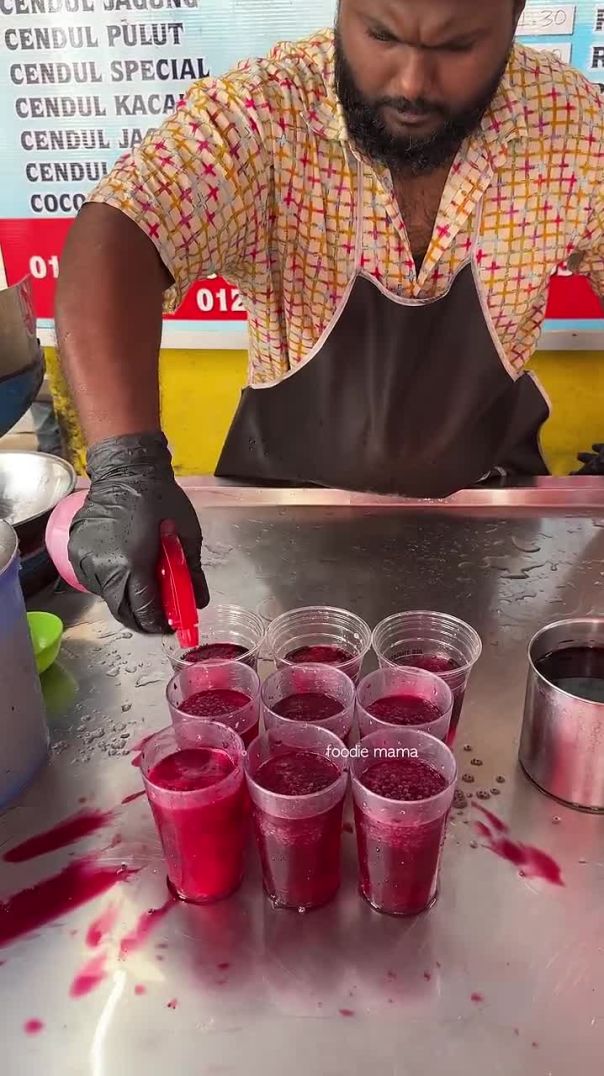











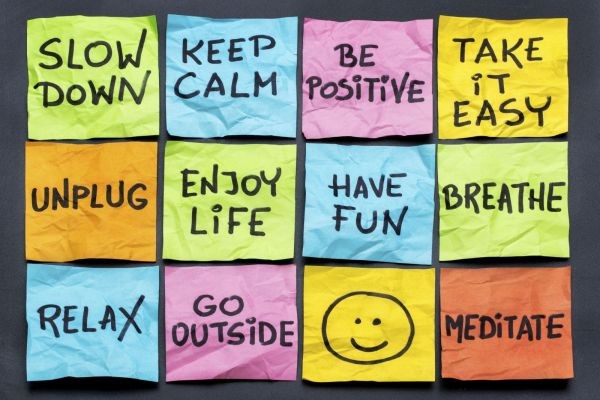


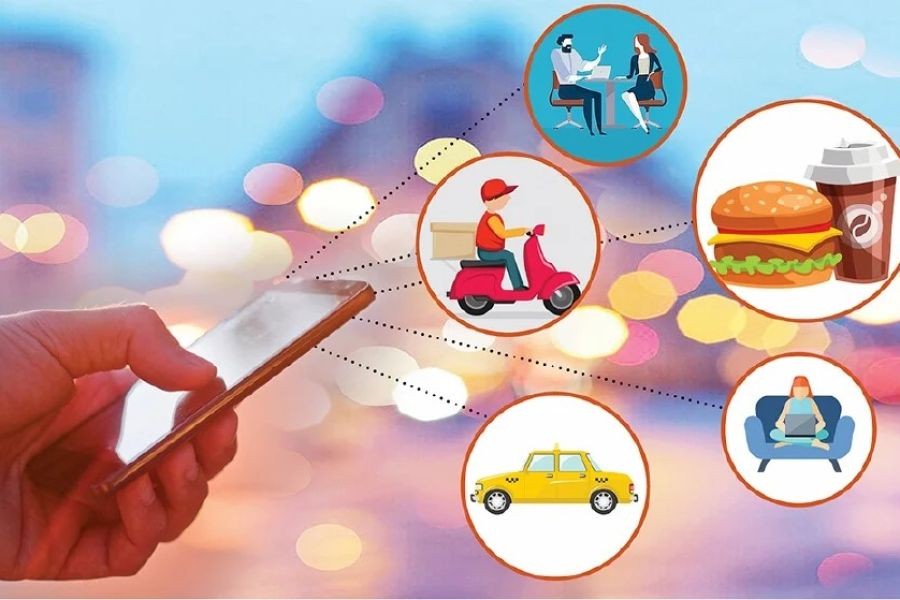



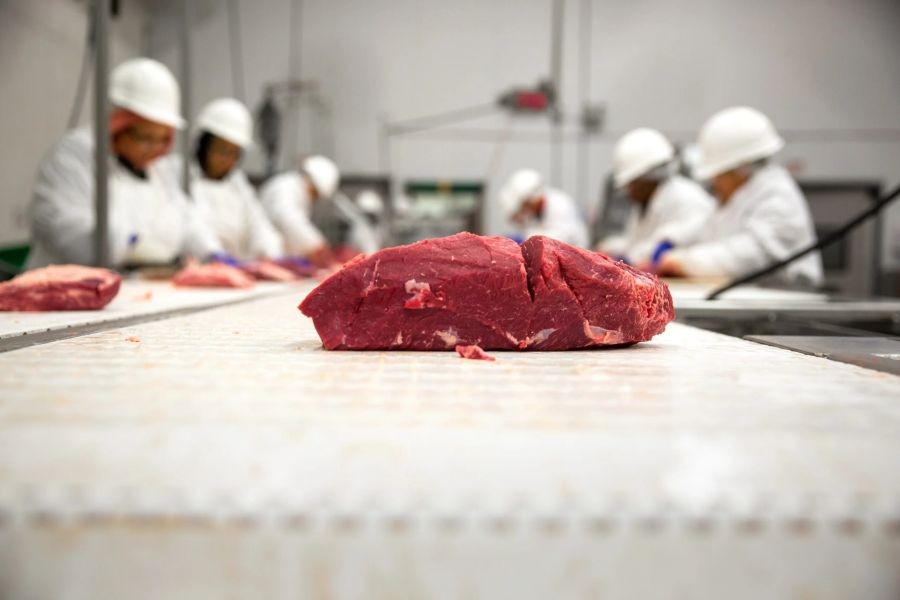

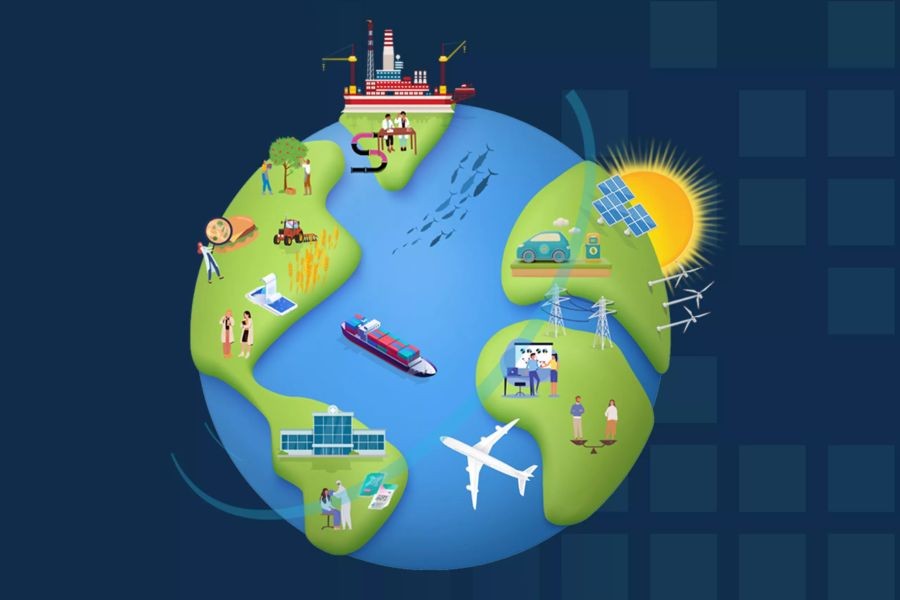




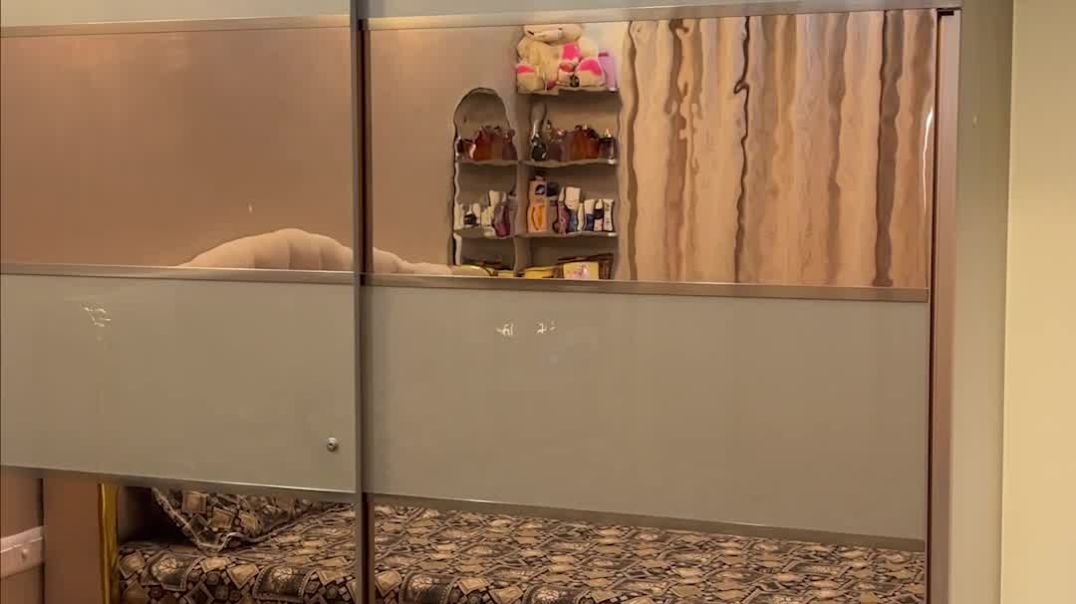



Cozy Hut
8 days ago